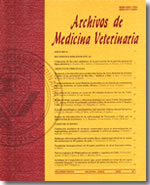Application of a real-time PCR assay to detect BK potassium channel expression in samples from Atlantic salmon (Salmo salar) and Rainbow trout (Oncorhynchus mykiss) acclimated to freshwater
Main Article Content
Abstract
Atlantic salmon (Salmo salar) and Rainbow trout (Oncorhynchus mykiss) are two fish species that spawn in fresh water (FW) and, during development, acclimate to seawater (SW) by secreting excess NaCl to the environment. The salmon industry measures Na+/K+ ATPase (NKA) activity as a molecular marker to determine the timing of smolt transfer from FW to SW. However, the lack of other accurate molecular markers of smoltification remains a major issue for the fish farming industry. The molecular mechanism of NaCl secretion in gills from SW-acclimated fish has a thermodynamic requirement to recycle K+ out of the cell via potassium channels therefore we hypothesised that potassium channel expression in gills may be a suitable candidate to monitor the smoltification process. In support of this hypothesis, we observed increased expression of BK potassium channel mRNA in gills from S. salar under conditions of high salinity (1.2%) compared to animals in FW. In this work, we designed a real-time PCR analysis in order to quantify mRNA levels of BK potassium channels in S. salar organ samples. We found differences in mRNA expression among gills, kidney and intestine. We also found a unique real-time PCR product in S. salar gills through melting curve analysis, agarose gel electrophoresis and cDNA sequencing. This PCR product showed a 98% of identity with the BK channel portion recorded by the NCBI Database and was differentially expressed in gills, kidney and intestine. This real-time PCR assay may become an important tool to study BK potassium channels expressed in the gills of S. salar and its changes during smoltification as putative new candidate to monitor this process.

